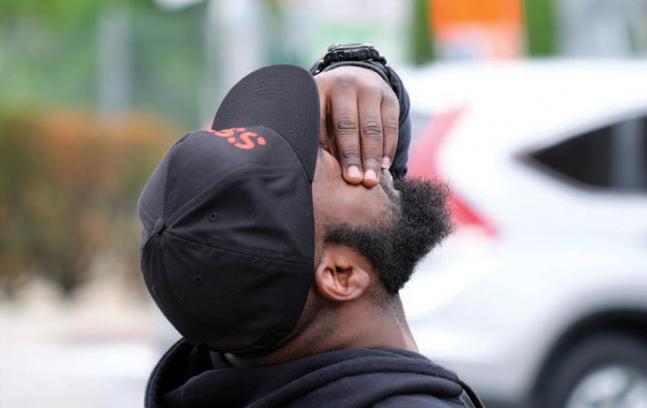The Taboo of Depression

The mental health of some people in black communities, says Sirry Alang, is closely tied to poverty, poor housing and other social structures in which they live. (Photo by Jewel Samad/Getty Images)
Discrepancies exist between how some African-American populations perceive depression and how depression is theorized within research and clinical settings. African-Americans are less likely to express depression and anxiety than people who are white, and these mental health issues are at the center of research by sociologist Sirry Alang '08G.
Alang, assistant professor of sociology in the department of sociology and anthropology, hypothesized that African-Americans express their mental health concerns differently than what is found in the instruments researchers currently use. Her research examines social factors that affect mental health and contribute to inequities and inequalities. To test her idea, she lived in a community of predominantly African-Americans in a disadvantaged neighborhood in a midwestern American city. She conducted informal conversational interviews on the streets, in parks, at bus stops, on busses, during and after church services, and during community events. She participated in community activities aimed at increasing awareness of social problems that plagued the neighborhood and the resources to address them.
"Had I used clinics to speak with people, I would be speaking with people who are already different than those in the community in terms of agreeing with or buying into western psychiatry and who have access to mental health services," says Alang, who is also a member of Lehigh's Health, Medicine and Society program. "People who are not in the clinics may have mental health issues they don't realize, may not express them in ways that are consistent with clinical medicine, and they speak more freely about their mental health in more informal settings.
"There is still this segregation where people are cut off from resources. It affects their mental health. People think, there's an expectation that things will always be messed up for me, and it's OK because I'm not supposed to care about this stuff. If I care about this stuff, people will think I'm even more messed up."
Alang's findings have implications for the clinical assessment of depression and for the measurement of depression in the community. The context and meaning of symptoms play an important role in determining whether experiences are indicative of depression. Mental health issues are an additional stigma because the population is already marginalized, says Alang.
"The neighborhoods are marginalized from racism, and mental health issues are added stressors in communities already dealing with poverty, poor housing conditions, lack of transportation or social isolation. It's not that they don't think mental health problems are real; it's that they are already dealing with so many other life stressors and they don't need an additional thing.
"If someone is angry, is it because they are depressed or because of their social conditions? We don't know, but that anger is a significant thing that mental health providers and policy makers should address. We can't talk about people's mental health without talking about their real-life conditions and experiences. Their mental health is closely linked to the social structures they are living under."
Posted on:

